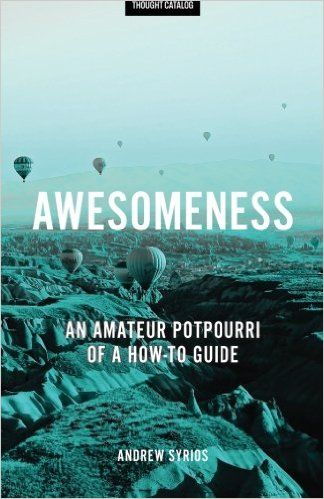|
Sometimes the best way to learn how to do something is to see it done wrong. And I came across such a case of marketing gone awry in a recent Graduate class assignment:The Anti-Snore Strap that was created by ByeBye Snoring. (1) The product was developed by James Bradshaw and consists of a strap that wraps around your head and holds your jaws slightly forward to keep your airways open. (2) As the WebMD notes, “Snoring occurs when the flow of air through the mouth and nose is physically obstructed. Air flow can be obstructed by a combination of factors.” (3) One of the most common factors is having “obstructed nasal airways.” By keeping the jaw slightly forward, this keeps the nasal airways open. That being said, the product fits into a very small niche, although it doesn’t seem to be aware of that. First of all, people who only have minor snoring issues can use simpler and cheaper products, such as nasal strips that can help open airways. Those who have serious problems with snoring probably have sleep apnea, which the ads and website for this product doesn’t mention or claim to be able to address. Sleep apnea is, as the Mayo Clinic describes, “a potentially serious sleep disorder in which breathing repeatedly stops and starts. If you snore loudly and feel tired even after a full night's sleep, you might have sleep apnea.” (4) People who have sleep apnea are often sleep deprived as they briefly wake up each time they stop breathing. Having sleep apnea can lead to all sorts of health-related problems such as daytime fatigue, high blood pressure, Type 2 diabetes and metabolic syndrome. It is a serious medical condition and is generally covered by insurance. In the more extreme cases, patients are given a CPAP machine which pushes oxygen into their lungs while they sleep. Right from the beginning, ByeBye Snoring’s marketing is flawed because, in all likelihood, they were unable to get it approved by the FDA as a solution for sleep apnea. A CPAP machine is rather obnoxious to wear, so alternatives (such as oral appliances) are preferred. That being said, ByeBye Snoring’s chin strap doesn’t look particularly comfortable either and many people will likely be turned off from buying it for that reason. And the fact that nowhere on the website or in its two-minute-long video advertisement is sleep apnea even mentioned—let alone is there anything about the FDA having approved it as a form of treatment—hurts this product greatly. Indeed, in the video advertisement, it notes that the product was featured on the television show My American Medical Review. It also rather weakly points out that “[ByeBye Snoring] has become a popular way to help prevent snoring.” (5) There are no testimonials from either patients or medical practitioners, which is a very noteworthy omission. In my estimation, consumers are going to pick up on what is not being said. It would appear that the marketing campaign for ByeBye Snoring’s Anti-Snore Chinstrap was hurt on the backend. With any sort of medical device, some sort of authority lending its credibility to the product would prove immensely important. There is a vast array of different products out there and people have become more and more aware of various scams. Without some sort of noteworthy certification (say for use with regards to sleep apnea) or a recommendation by a noteworthy medical institution or doctor, the product’s marketing comes off as amateur. Even noting that it appeared on a TV show seems to do it more harm than good. The question that immediately came to my mind was “is that really the best you can say for it?” The television advertisement also oscillates from making its pitch to people who snore and to people whose spouse snores. This ad starts with, “Do you sleep with someone who sounds like a chainsaw? Does snoring keep you awake or keep you apart? If you live with someone who snores, you know it’s no joke.” Then near the end, the ad says, “Not only will you stop snoring instantly, but you’ll also wake up feeling rested and refreshed.” While it makes sense to market to both those who snore and those who don’t, there should be a focus that runs throughout the ad. There isn’t, and it makes the ad feel very impersonal (who is the ad talking to?) and unfocused. This lack of focus runs throughout ByeBye Snoring’s marketing. The company is primarily focused on its one key product; the My Snoring Solution Anti-Snore Chinstraps. Yet the website is ByeByeSnoring.com. MySnoringSolution.com leads to a completely different company’s website. People have a hard time keeping multiple things in their mind and thus, it is critically important to focus on branding. Instead, the product is called My Snoring Solution (at least I think it is, the words “My Snoring Solution” do not appear on the website), yet the company is named ByeBye Snoring even though it only appears to have this one product. Even the symbols used for My Snoring Solution and ByeBye Snoring are different: This lack of consistency also plays hand-in-hand with the lack of anything memorable about the ad. There is no jingle or story or anything that will stick in the consumer’s crowded mind after the advertisement has been seen. These types of ads are likely to be quickly forgotten.
Finally, the ad ends by coming off as rather desperate, “If you are not sure if My Snoring Solution is for you, then at ByeByeSnoring.com, we provide a 100 percent unbiased review of the My Snoring Solution chin strap based on unbiased user feedback.” (6) No one seriously believes that a product’s website will have “unbiased user feedback.” Indeed, the website itself looks like a rather cheap splash landing page. In fact, the whole sales pitch appears to be a gimmick. It says that the chinstrap is free. All you have to pay is the shipping and handling costs of $12.95. $12.95 is, quite obviously, far more than is needed to ship a simple chin strap. It seems that the company is making its money by merging the profit, costs and shipping into the shipping and handling cost and then pretending that the product is free. When people hear something is free, they immediately start wondering what the catch is. On the website, it notes that the shipping and handling is $12.95 and then two lines down in big bold letters it reads “There is No Catch!” Which is a weird thing to say since it just told us what the “catch” was a few sentences earlier. And it gets even worse. The user feedback is a screenshot of Amazon.com user ratings. Nowhere is there a link to the Amazon page and while Amazon is full of various chin straps for snoring, (7) the only product that comes up for either ByeBye Snoring or My Snoring Solution) has only one review. The screenshot on ByeBye Snoring’s website shows three reviews. (8) All these various problems make it unlikely that ByeBye Snoring will be able to convince consumers to trust them. I couldn’t find anything on US Patent Office’s website, which implies they have no patent on the product. And given that there are many other chin straps available, this presents a huge problem. The market (which is relatively small to begin with) is saturated with substitutable products. And ByeBye Snoring doesn’t do much to convince consumers to choose them over any other brand. As should be obvious from the above, I was thoroughly unimpressed with ByeBye Snoring’s marketing for its Anti-Snore Chinstrap. The website appears to be inactive and it appears the company may have even gone out of business. All of which goes to show that getting “seen on TV” is not enough. A good marketing campaign is essential for any product to be successful.
Comments
As communism seems to have gotten a bit more popular lately (despite communism-lite failing spectacularly in Venezuela), I thought I would republish this article I wrote for SwiftEconomics.com.
I know, communism and the Soviet Union are respectively discredited and long gone. Still, I think a reflection upon them can give some insight into the absurd and disastrous policies central planning allows for; a warning if you will. The first was how many communist countries treated their own environments. For all those that think giant bureaucracies can help save the environment, one might want to look at how the Soviet Union treated the Aral Sea. According to Orexca.com: "In the early 1960’s, the Soviet central government decided to make the Soviet Union self-sufficient in cotton and increase rice production. Government officials ordered the additional amount of needed water to be taken from the two rivers that feed the Aral Sea. "Large dams were built across both rivers, and an 850-mile central canal with a far-reaching system of 'feeder' canals was created. When the irrigation system was completed, millions of acres along both sides of the main canal were flooded. "Over the next 30 years, the Aral Sea experienced a severe drop in water level, its shoreline receded, and its salt content increased. "…Today, Muynak is a desert town more than a hundred kilometers from the sea. The only reminders of the once thriving fishing activity are the rusting hulks of ships and an ancient fish plant. The sea has shrunk to two-fifths of its original size and now ranks about 10th in the world. The water level has dropped by 16 metres and the volume has been reduced by 75 percent, a loss equivalent to the water in both Lakes Erie and Huron. The ecological effect has been disastrous and the economic, social and medical problems for people in the region catastrophic. All 20 known fish species in the Aral Sea are now extinct, unable to survive the toxic, salty sludge." Pictures of rusted ships in the middle of the desert, such as the one below, are quite eerie indeed. It’s almost from one of those post-apocalyptic movies. If they ever release a fourth Mad Max, having some of these in the background is a must.
Ahh the comedy of communist-induced tragedies. How about food distribution? Well, it’s needless to say that Soviet agriculture was just a long series of disasters (intentional, such as Holodomor and unintentional). While I can’t verify this story, Russian born and former Gorbachev aid, Yuri Maltsev (who is currently an economist living in the United States) tells of his experience with the Soviet government:
"They [the Soviet Union] would have official statistics which would be kind of an arrogant communist party slogans, nothing else. All the time people would starve, but production was going up like that. That statistics were only believed in Harvard University, but no one in Russia. "Then they produced statistics that were classified statistics, which were also propaganda, but more believable. Moreover people would kind of steal this… but it’s kind of like rumors that life is not as good as they tell us, but still pretty good. "And then there would be top secret statistics for the few had access, which were also phony because they wouldn’t have something called primary reporting… these top secret statistics were kind of estimates produced by Soviet government bureaucrats… about agriculture and everything else. "In 1978, I’m not making this up [Leonid] Brezhnev looked at these top secret and found out that there were no vegetables in the Soviet Union. He was shocked, as you can imagine… And so what the socialists would do… is immediately create a Ministry for Vegetables… They appointed comrade Povloski, whom I happen to know, as a minister. And this comrade Povloski could not sleep at night. He thought ‘well how will I come up with vegetables.[And if not] I will be shot or demoted or thrown out of the party…’ Then in 1988, Gorbachev cut off funds and shut down the Ministry for Vegetables. This is a joke, we don’t have vegetables." Gee, I could certainly go for a Ministry of Pizza right now. Unfortunately as Yuri points out, the Ministry of Vegetables didn’t actually produce any vegetables. So such a ministry would leave my desire for pizza unrealized. Now I’m sure there were some vegetables floating around in the Soviet Union at the time. But regardless, like the fictional Ministry of Truth in 1984, as Yuri puts it “you need a ministry to ruin something.” While I have plenty of issues with Ronald Reagan, I think I will close with some of his stand-up-worthy jabs at the Soviet Union and communism in general. Enjoy: So Trump's former campaign manager Paul Manafort got convicted of eight counts of various forms of fraud on the same day that Trump's former lawyer and so-called "fixer," made a plea bargain on eight counts of various crimes. Cohen also said he would testify that Trump ordered him to pay off some porn stars who claimed he had consensual sex with them about 10 years ago. And then the Left went nuts talking about impeachment and what not. What's new?
While none of this looks good for Trump, he'll survive this. Indeed, his poll numbers haven't budged since these revelations came to light. And this shouldn't be too surprising if we examine exactly what these crimes were. First off, Manafort was convicted of old crimes that predated his tenure with Trump and had to do with financial corruption, not helping Putin elect Trump. So while it looks bad for Trump to have hired him, it doesn't, in and of itself, create problem for Trump legally. Regarding Cohen, yes this is some sleezy stuff. But legally speaking, as Alan Dersowitz notes, Trump is likely in the clear, "A few things are clear. A candidate is free to contribute to his or her own campaign. It also is not criminal for a candidate to pay hush money to women whose disclosures might endanger his campaign. So if candidate Trump paid hush money to his two accusers, there would be no violation of any campaign or other laws. To be sure, if he did so for the purpose of helping his campaign — as distinguished from helping his marriage — his campaign would have to disclose any such contribution, and failure to do so might be a violation of a campaign law, but the payments themselves would be entirely lawful." But even if it was done for his campaign, is that impeachable? Obama had to pay $375,000 for campaign reporting violations back in 2008. It didn't even come close to bringing down his presidency. And of course, none of this directly tied Trump to anything to do with Russia and collusion regarding the 2016 election. So legally speaking, Trump is probably fine. What this does is make Trump look like a philandering asshole. But everyone already knew that about him. And that includes his supporters. In many ways, I believe Trump is so popular amongst his supporters because he is such an asshole. The Left has been browbeating conservatives for years. Indeed, think about the fury that would erupt on the Left if conservatives tried to shut down every liberal speaker as Antifa does while committing a variety of assaults and felonies when doing so. Trump's fans feel like the Left has been attacking them for years. Well, Trump drops all the Romney-like pretenses of civility and goes right back at them. That's why they like him. The fact that he hired someone who committed financial crimes a decade ago and cheated with even more women than was previously known is hardly going to change anyone's mind about him. Back in college I wrote a thesis-lite (a research paper to complete my history minor that I could have expanded into a thesis) comparing the hyperinflation in Germany after World War I and the hyperinflation in Hungary after World War II.
Both were absurd experiences that devastated the economies and led, albeit in different ways, to totalitarian dictatorships (in Germany it weakened the political order and made it easier for the Nazi’s to come to power a decade later during the Great Depression and in Hungary it weakened the country to the point the Soviet Union could easily take it over). Both hyperinflations were of different speed, reacted to differently and ended differently, but both also had some very interesting similarities. Hopefully our money-printing madness doesn’t lead to a similar event in the United States. Anyways, I decided to post it on this site for free. Please take a look at it for free here. Here's an old article from my previous blog Swift Economics that is even more relevant now:
Despite the recession and a myriad of reports to the contrary, the world has gotten a lot better. People live longer, are wealthier, more secure and eat more than ever before. Never before could anyone imagine that obesity would be a problem. This is especially true in Western and Asian countries, but is even true for everywhere else with the possible exception of sub-Saharan Africa. Technology, science and relatively free markets would be my explanation for this development, but this new dynamic has a downside. That downside is what I’ll be discussing here. Unfortunately, I don’t have much in the way of solutions, but I’d at least like to elucidate the problem. Back in the good old days, people had few choices and that made it relatively simple to plot one’s path in life. If you’re born on a farm, you work on the farm. Most artisan trades required a fair amount of practice, but switching to another by no means required untold years of training. Human beings are just naturally equipped to pick up manual labor without a significant amount of education. Furthermore, the success or simply life courses of others was not so readily apparent. People in a small town basically lived a simple life; family, profession and if they were lucky, a little down time. Certainly there were a myriad of problems I would not want to return to; medieval peasants constantly faced starvation and 19thcentury factory workers would put in 60-80 hours a week in grueling conditions. But one didn’t have to think about whether to pursue a career as an engineer, doctor, accountant, entrepreneur, etc. At least not to the degree we do today. Today, once you set off on the course of becoming an engineer, switching to become a doctor is all but impossible. It would require four years of college, three years of medical school and then several more years of residency. If you’ve already got a degree in engineering and a few years of work experience under your belt, switching would require a lifespan significantly longer than the human body can provide. The Internet offers an array of possibilities to gain knowledge or start on a new career or social path, and well, see what everyone else has been doing. Do you want to travel the world? Do you want to learn to play a musical instrument? Do you want to learn a second language? Do you want to become an expert in 19 different subjects? Do you want to find a soul mate (or a bunch of short term ones)? Do you want to become an Internet entrepreneur and make sizeable residual income? Or how about learning to ski, mountain climb or run marathons? P90X or Insanity? Atkins or Paleo? There’s so many choices, so many paths and yet only a limited amount of time to achieve whatever your goal was. In Geoff Colvin’s book Talent is Overrated, he discusses how Mozart and Jerry Rice got so good at what they did, which amounted to little more than a ton of hard work. Mozart started at an ungodly young age and dedicated his life to music (his first symphonies were not particularly good). Jerry Rice was legendary for showing up really early to practice and leaving really late. They became great through monomaniacal focus on their craft. Such monomaniacal focus on a given craft was surely all but impossible back in the day when starvation was a real concern. This is one piece of the explanation of why economic growth started increasing exponentially in the late 18th century. Once people had enough to eat they could focus on building a business, creating new inventions and coming up with a vast number of scientific and medical breakthroughs. Enough people dedicated themselves so thoroughly to such pursuits that the capital and technology simply built upon itself. Such focus on a single career could allow someone to master it, whereas for normal people, they still typically lived in small towns where everyone around them was fairly similar to them and options were limited. I think it’s no leap to say that today such dedication has been diluted among the high performers and that the simple life of us common folk ain’t so simple anymore. As we move from the industrial age into the information age, careers require significantly more education to master. Simple tasks can be automated, now even tradesmen such as electricians have an awful lot more to learn than many of the artisans of old. We’ve simultaneously moved from a society with limited options yet few barriers to entry to one with many options but difficult, typically intellectual barriers to entry. How then can one find a vocation to dedicate him or herself to? (To say nothing of family or other pursuits). I think the number of hobbies people have as well as fads (diets, get-rich-quick schemes, etc.) and escapism (video games, celebrity gossip, fashion magazines) have increased dramatically due partially to this dynamic. Mass media is, of course, also to blame. Perhaps even the totalitarian impulse comes from this. Most people simply don’t want to make up their minds or bear the consequences of their decisions. Being told what to do may not always be pleasant, but it is much easier. While authoritarian systems lead to less growth and science as well as more oppression and war, the impulse to have one’s life directed is certainly the path of least resistance; if nothing else it’s a break from all the other decisions in life. I can’t say how many hobbies, diets or plans I’ve seen people pick up and then subsequently drop. Is this just part of human nature? Perhaps it’s an unrealistic optimism we’ve evolved to motivate us to try instead of give up. Or perhaps it’s something new to our own time. Perhaps after being excited by the first bright, shiny object, we get distracted and turn our attention to the second bright, shiny object. And repeat. Rates of depression and mental illness are rising, which of course could mean we’re just counting more conditions as such, or that people are almost paralyzed by the choices and subsequent dedication required to actually fulfill those choices. People then compare themselves to others who have succeeded in those areas and are so prominently displayed. Is it any wonder that people go figuratively or literally crazy? Back when starvation was the issue, who would care if their neighbor had six pack abs. I shouldn’t make too much of this; while this is certainly a problem, the trade-off we’ve made is well worth it. As I mentioned, just about every metric shows the world getting better. Still, the problem of choices and the subsequent distractions, indecision and passing fancies are an issue. Solutions are tough to come by, but somehow, a renewed sense of prioritization is necessary. Schools could help, but I’ve pretty much given up on getting quality results from our public schools. Good parenting is probably the most effective answer as parents can help instill a sense of direction and purpose in their children, which just makes it all the more tragic that family breakdown is all but the norm these days. Perhaps the myriad of choices and unrealistic expectations built up by an insatiable media play a part in that breakdown as well. Still, that’s probably the best place to start.
You have likely heard of the "5 Stages of Death and Dying," which was originally proposed by Elisabeth Kübler-Ross in 1969. The stages go as follow:
- Denial - Anger - Bargaining - Depression - Acceptance People think of this when it comes to someone being diagnosed with a terminal illness. The scene of Walter White being diagnosed with lung cancer in Breaking Bad is a good example of the opening denial stage:
But these stages apply to any sort of awful event in people's lives; from losing a job to going through foreclosure to a death of family member to a divorce to a simple breakup. Indeed, have seen various stages of this plenty when talking to people going through foreclosure. Some get angry at me even though I'm just there to possibly make an offer on their home. Some are in complete denial. Some have accepted it and just wanted to get it over with and sell the property.
Hell, I myself recently went through a breakup and have experienced each of these stages to one degree or another. The steps don't necessarily come in order and you can go back and forth between different stages. But it's important to know for two reasons. First of all, if you are dealing with someone going through this process for whatever reason, it's important to recognize what stage they're in. If you don't, their behavior may seem completely irrational and your response might be inappropriate. On the other hand, we will all go through tough events in our lives and it's important to know that you're going to go through these stages no matter how tough you are. But knowing this is quite liberating. Because by knowing it, you know that it's just a stage. It will get better and you will feel better. Unfortunately, you have to go through these stages and the process isn't any fun. But knowing it gets better and understanding which stage your at can make the process a whole lot better. From SwitfEconomics:
Charles Duhigg certainly bit off a large bite for himself, and did a mostly very good job of chewing it. The Power of Habit is a fascinating book that looks into how we develop habits and how those habits affect us at individual, organizational and societal level. The most interesting part is the beginning where he tells the story of Eugene Paulie, a man whose brain had been severely damaged by encephalitis and had lost all of his memories, including his ability to remember anything after more than a few minutes. Yet the man could still speak and do all the tasks he had learned throughout his life. In fact, he could even walk around the block and find his way back home. Cues would tell him it was time to eat and if it weren’t for the intervention of his wife he would eat five or six meals a day. What this helped lead scientists to was that habits are not memories. They are more similar to instincts, but instincts we learn or adopt. Basically, they are automatic processes that takeover when we receive whatever cue, and it culminates in some reward that solidifies the habit. While the processes are complicated, they mostly reside in the basal ganglia, the very center and most primitive part of the brain (the brain effectively evolved on top of itself with the most advanced parts on the outside, such as the prefrontal cortex). This has all sorts of important implications especially with regards to addiction and how we judge individuals behaviors. How much of what people do is under their control? Unfortunately, Duhigg’s dicsussion of this is the weakest part of the book. He compares the case of a woman named Angie Bachmann who won the lottery and then became a gambling addict and gambled away her entire fortune, and then proceeded to gamble away her entire inheritance., with a man named Brian Thomas who accidentally murdered his wife while having a sleep terror. Sleep terrors are quite different from sleep walking as sleep walking is usually just going through random habits, while sleep terrors involve going into a highly anxious, primitive neurological state. The night he killed his wife, they had seen some hoodlums causing trouble, so they moved their RV. That night he had a sleep terror and while dreaming that those hoodlums were attacking him, he strangled his wife to death while unconscious. The woman was held responsible for her debts while the man was acquitted of murder. Duhigg sums up our society’s motives as follows: "…there is one critical distinction between the cases of Thomas and Bachmann: Thomas murdered an innocent person. He committed what has always been the gravest of crimes. Angie Bachmann lost money. The only victims were herself, her family and a $27 billion company [the casino she gambled at] that loaned her $125,000. "Thomas was set free by society. Bachmann was held accountable for her deeds." (pg. 268-269) There are a lot of interesting questions with regards to the legal and moral ramifications of neurological science, but this is a horrible comparison. Right off the bat, the difference between criminally punishing someone and civilly holding someone accountable for a debt they incurred is enormous. Thomas was literally unconscious when he attacked his wife. And while he had had night terrors before, he had never done anything even remotely violent and there was no real reason to think that he would. The question with regards to Thomas is should someone be held liable for what they do while unconscious. Bachmann was conscious while she gambled. So the question for her is should someone be held liable for something they do while habitually addicted. They’re two very different questions, and if we do drop Bachmann’s culpability because she was a gambling addict, do we thus drop the liability of someone who drives drunk and kills someone in a car crash because they were an alcoholic? This is especially true since one of the important lessons of this book--which is touched on throughout and elaborated upon in a very good appendix--is that habits can be changed. Yes, we do things by habit without thinking about them in what is effectively an instinctual sort of way. And yes, changing them is difficult. But yes, they can be changed. Each habit is three steps: 1) Cue, 2) Routine and 3) Reward. The key is to isolate them. He describes the steps experts agree on taking: – Isolate the routine -Experiment with rewards – Isolate the cue – Have a plan (pg. 276) What’s important is to change the reward to something positive (i.e. eating an apple) instead of something negative (i.e. eating a cookie). But of course, one has to figure out exactly what the reward really is. It may be the longing to have a break rather than eat something and the cookie is incidental. Thus, the experimentation. In the book, Duhigg also goes into the habits of organizations and societies, particularly societal movements. This part is good too, but is more anecdotal than empirical. Still, the story of Starbucks and Alcoa almost obsessively emphasizing respectfulness and safety respectively, and the discipline and success that came from that, is quite compelling. Despite some minor flaws, The Power of Habit is still a fascinating and well written book on an extremely important topic. Much of what we do is through habit, not conscious thought. The better we understand and thereby learn to control our habits, the better we will all be for it. I've written about why systems are better than goals before, but one of the main benefits is that you don't get so disheartened when you "fall behind." This disheartened feeling many get when the fall behind schedule can lead to an all out meltdown that destroys any progress you had previously made.
For example, let's say your goal was to lose 20 pounds in four months. For the first two months, you're on pace. You've lost 10 pounds and are feeling good about yourself. Then, you have a really bad week and gain five pounds back. Now all of a sudden, you're only a quarter of the way to your goal yet have burned half of the time you (arbitrarily) allotted. The two reactions to this that seem to be common are 1) Meltdown. Pig out on pizza, soda and bonbons because all is lost. Now, after dieting for two months, you actually weigh more than when you started. Or 2) Go for some crash diet to make up for lost time. This rarely ends well and will, more often than not, eventually become the first option. On the other hand, if you set up systems to live healthily, you don't have to worry about hitting those artificial timelines. For example, such systems could include; no eating out on your own, no buying junk food at the grocery store, working out four times a week, no eating after dinner, etc. And this doesn't even get into one of the biggest problems with goals; what happens when you succeed? Do you set a new goal and move back into what Scott Adams calls "presuccess failure?" That doesn't sound like a fun place to permanently live in? Goals can be useful, but they're not a good way to organize your life. Goals pretty much make you damned if you do and damned if you don't. Systems over goals any day of the week!
Here's an old SwiftEconomics article I wrote on the Zeekler meltdown that came to mind when my brother showed me this epicly absurd video from another ponzi scheme that I somehow missed; BitConnect. It's rather funny.
Enjoy:
It’s no secret that I am not a fan of government regulation in generaland the SEC in particular. Indeed, I think what the SEC did to PokerStars amounted to nothing more than extortion.
But I would be dishonest if I said they didn’t get it right sometimes, which is what happened yesterday when they shut down Zeekler, the penny auction site that apparently used its own affiliate’s investment to pay, well to pay its affiliates. Ladies and gentlemen, that is a Ponzi scheme. Zeekler or ZeekRewards is one of those penny auction sites like QuiBids, where people pay a certain amount for a bid and then use each bid on whatever item that is being auctioned. Each bid is worth only a penny, so each item sells for way less than normal. However, since people had to buy the bids in the first place, the total amount put into these items far exceeds the item’s market value. In other words, it’s nothing more than a form of gambling. Zeekler was different than the others though, because it marketed itself by bringing in affiliates that would invest however much money in Zeekler. This money bought free bids for potential customers who could use those bids to place a penny bid on whatever item. In addition, affiliates had to place one ad a day on one of an assortment of different craigslist-ripoff sites advertising the free bids to potential customers that the affiliates were providing with their own money (yes, it does sound a bit suspicious doesn’t it). For putting up their money and this ad, the affiliates were promised something like a 1.5% return per day! Which amounts to approximately one butt load% per year. (My dad calculated Zeekler would have to make as much money as Apple to pay out the obligations they had incurred, but I don’t feel like verifying this.) I was actually given a sales pitch on ZeekRewards to come in under someone who had signed up an acquaintance of mine (like any multi-level marketing company, you get a piece of the people’s profits whom you bring on board). The pitch immediately sounded questionable (indeed, questions about whether ZeekRewards was a Ponzi scheme are nothing new). There was quite a few specific questions he couldn’t answer, namely: – How much cash does Zeekler have on hand? – Why won’t Zeekler allow you to take all of your money off the site at once (you have to do it in steps)? – How can Zeekler manage the immense amount of accounting that would be required? – Why would anyone buy bids for Zeekler when they can get free one’s from an affiliate who are putting up the money? – And thus the big question; what percent of the bids are bought vs acquired for free? Actually the only thing that gave me any confidence that Zeekler was legitimate was the fact it hadn’t been shutdown by the SEC at that point. On a side note, I should mention that regulation often just provides a false sense of security. This was even part of the guy’s sales pitch for Zeekler. And after all, how much has the SEC really saved investors here given that according to their own report, Zeekler was about to collapse anyways. They certainly didn’t save the investors in Bernie Madoff’s scheme a dime. But I digress. Simply put, the problem was that despite that spam ad that each affiliate had to post, the affiliates didn’t add any value other than their cash investment. Honestly, this “work” affiliates had to do was a joke. The guy giving me the pitch even mentioned there were companies that you could hire to post your ad for you. (Because 2 minutes a day is just too much of a time commitment. By the way, why didn’t these companies just sign up for ZeekRewards?). Furthermore, it’s not surprising that Craigslist wouldn’t let Zeekler affiliates post ads there since it would just be a barrage of spam. So which sites did let Zeekler affiliates post to? Well, they are sites that, from what I can tell, were set up just to be spam receptacles. Take a look at AdPost.com’s business products section and see if you notice anything:
It appears that every one of the sites Zeekler affiliates posted ads to was pretty much like that. Who is possibly going to use these ads? And if they do, who cares? All the bids they would get were for free and if they wanted more, it wouldn’t be too hard to find a place that offers more free bids. Indeed, why would anyone, under any circumstances imaginable, actually buy Zeekler bids?
So at least I got my question answered. It turns out that 98% of ZeekRewards revenue came from investors (cough, Ponzi scheme, cough). Which is not surprising given the only thing of value the affiliates brought to the table was their own money. As the SEC complaint states, “ZeekRewards brought in approximately $162 million while total investor cash payouts were approximately $160 million.” (You can read the entire SEC filing here). I wonder what goes through the heads of people like Zeekler CEO Paul Burks, Bernie Madoff, the financial ministers of virtually every Western entitlement system or Charles Ponzi himself. Was it just meant to be a temporary solution until things got out of control? How on Earth did they think they would get away with it? It simply baffles me. In the end, my friend has probably lost his entire investment, for all intents and purposes. My parents lost a small amount one time in a similar sort of thing and eventually received a pittance payment some 15 years later (I kid you not), so Zeekler investors shouldn’t expect to get anything back. In the end, it’s the same old lesson folks: if it sounds too good to be true, it probably is. And if it looks like a Ponzi scheme, swims like a Ponzi scheme and quacks like a Ponzi scheme, then it probably is a Ponzi scheme. My father wrote this piece for our new Stewardship Properties Facebook Page on how we survived the 2008 financial crisis which sunk so many other real estate investors. Anyone interested in real estate investment and how to manage crises should gain from it:
We routinely get asked this questions by new private lenders, banks, and other industry professionals. Well, sometimes it's better to be lucky than good. While that somewhat provides the answer to this question, there is more to the story. Stewardship's initial real estate financial foundation rests on campus rental properties primarily around the University of Oregon in Eugene. I (Bill Syrios) have been investing in campus rentals there since 1989. This sub-market has experienced tremendous appreciation since then and we have done a good job to keep our properties rehabbed and current with the times. In a downturn, people go back to college because they are out of work, want to upgrade their skills, or just have nowhere else to go. This means campus properties usually fare quite well in a recession and, as a matter of fact, they were the only locations in the country that saw an upturn rather than a downturn during the Great Recession of 2007-2010. But there was another factor at work for Stewardship. Even in a downturn, buy and hold investors (which we primarily are) experience financial stability or financial peril on the basis of their rents and cash flow, not property values. Our properties produce lots of positive cash flow and so were basically immune to valuation drops (if they would have taken place in our market.) And, what is true for buy and hold investors in campus locations, is generally true in other rental markets as well: as buy and hold investors, we are all about increasing cash flow by upgrading and keeping properties well maintained. It would be possible to experience difficulties in a recession but ONLY if the rents went significantly down, something that is unlikely to happen except in the very worst of times. As one friend of mine likes to say, "people have gotten used to living indoors." Because of this we will always have renters, even if we might have to occasionally drop our rents to accommodate a severe downturn. So, as long as our rents and therefore our cash flow is relatively solid, we will have no difficulties. One final epilogue to the story is this: stock investors often do something called "dollar cost averaging." This means they put a certain amount of money into the market (say $5,000 a quarter into an index fund) no matter where the market is in any given moment. Over time, the market goes up as does their particular stock investment. Something akin to this happens in real estate for buy and hold investors. We keep on keeping on (since 1989) investing in real estate. The early investments have appreciated, and their mortgages have been paid down. This allows us to keep investing with more confidence because, although prices are now higher, we have other, older properties that were purchased at much lower prices. It's a form of dollar cost averaging applied to buy and hold real estate investment. |
Andrew Syrios"Every day is a new life to the wise man." Archives
November 2022
Blog Roll
The Real Estate Brothers The Good Stewards Bigger Pockets REI Club Meet Kevin Tim Ferris Joe Rogan Adam Carolla MAREI 1500 Days Worcester Investments Just Ask Ben Why Entrepreneur Inc. KC Source Link The Righteous Mind Star Slate Codex Mises Institute Tom Woods Michael Tracey Consulting by RPM The Scott Horton Show Swift Economics The Critical Drinker Red Letter Media Categories |

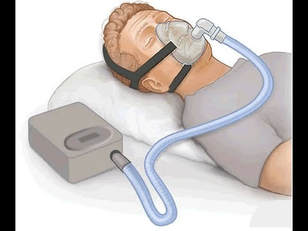




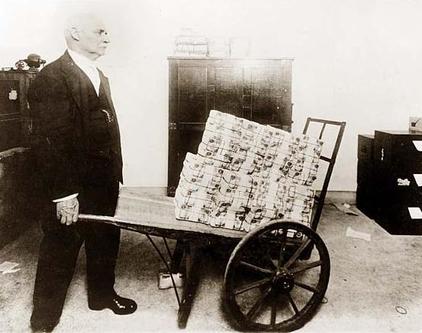
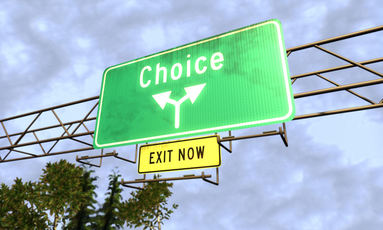
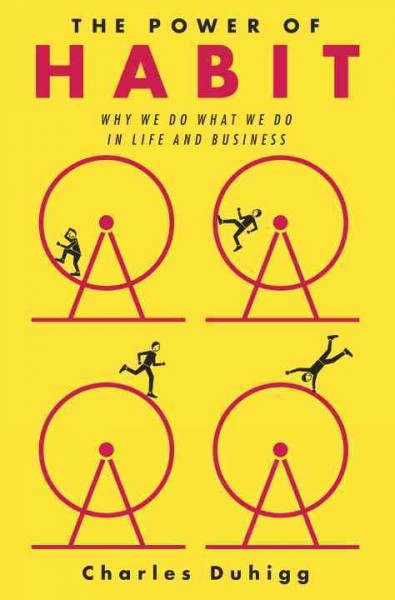

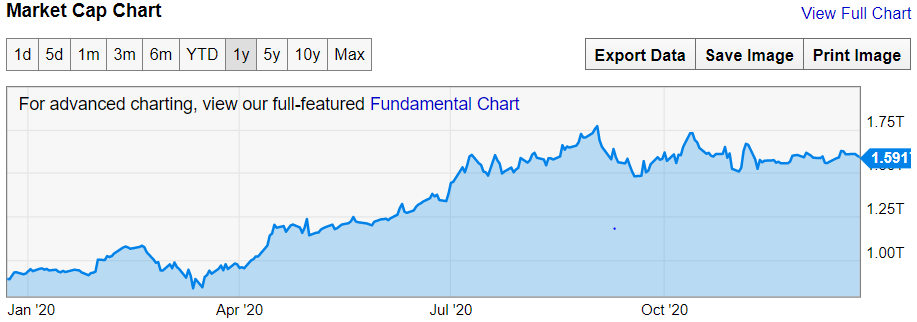
 RSS Feed
RSS Feed
